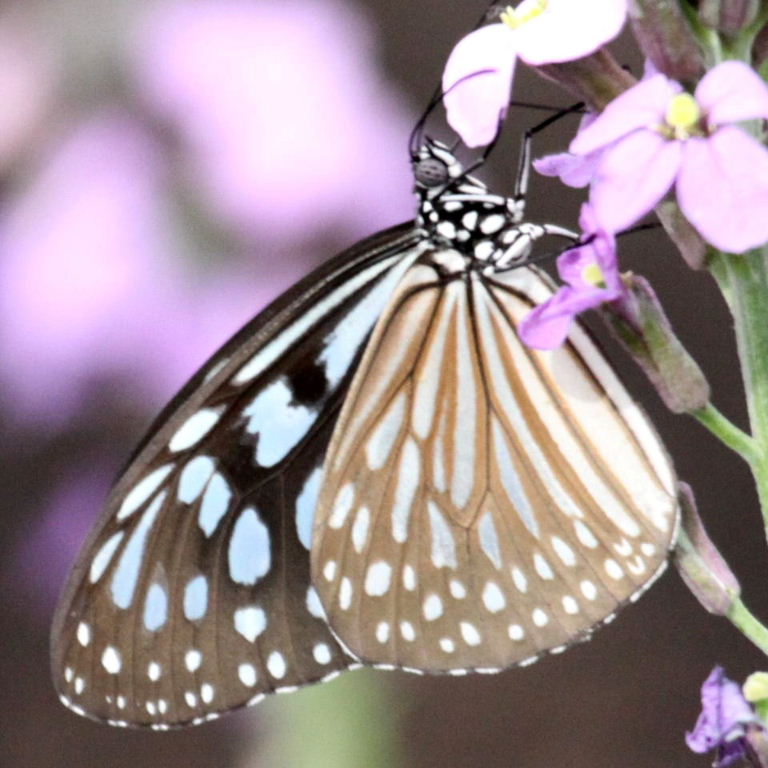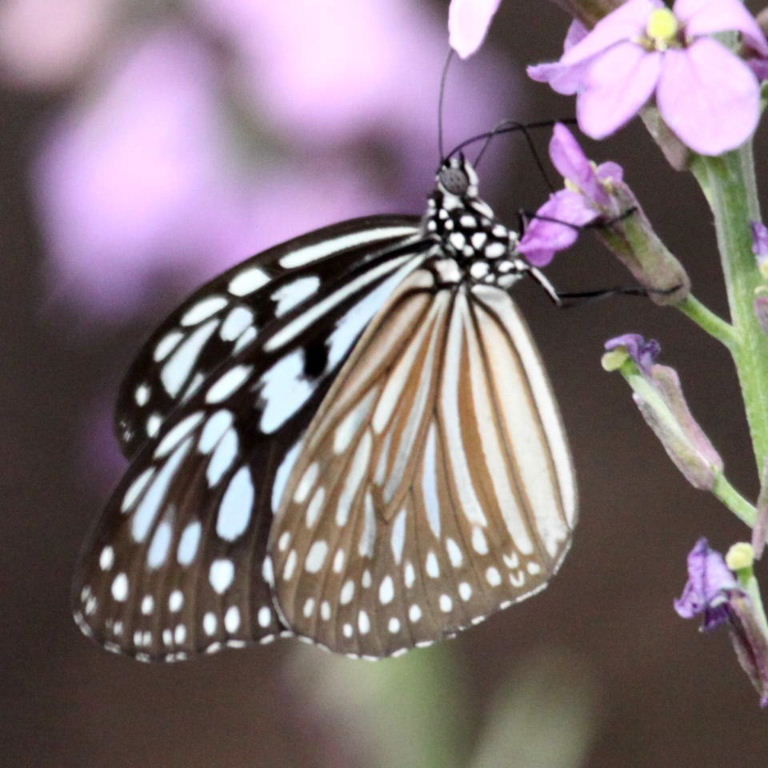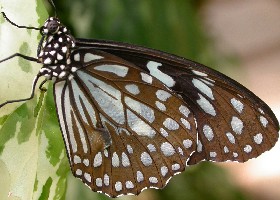Blue Glassy Tiger Butterfly Ideopsis vulgaris


The Blue Glassy Tiger Butterfly is native mainly to Southeast Asia. Its underside hind wing often looks a little "glassy" and unclear, as left above.



The black and white body spots warn potential predators that these Danaid butterflies, whose caterpillars have eaten milkweed, are distasteful and poisonous.



The Glassy Tiger (Parantica aglea) and the Dark Glassy Tiger (Parantica agleoides)
look very similar to the Glassy Blue Tigers above and there are several others which look relatively similar, including
the Blue Tiger (Tirumala limniace) and the Dark Blue Tiger (Tirumala septentrionis)
of South and Southeast Asia, the Scarce Blue Tiger (Tirumala gautama) of India, the Blue Tiger/Blue Wanderer
(Tirumala hamata) of Australia, the Chocolate Tiger (Parantica melaneus) and others.
Individuals vary and there are also subspecies and mimics using inedible Danaids as protective camouflage.



Key identification features to differentiate from the other Blue Tigers are ringed above.
At the end of the forewing (top- and under- sides) is an almost circular arrangement of blobs; the second, elongated blue mark ringed,
on the forewing, is broader and broken in two; the pattern of the third mark ringed on the underside hind wing is a key pattern indicator
for different Blue Tigers: here it is like long, blue, open tongs with a short blue streak in the centre.


The chrysalis of the Blue Glassy Tiger looks a little similar to that of a Monarch, its Danaid relative, but is glassier.




